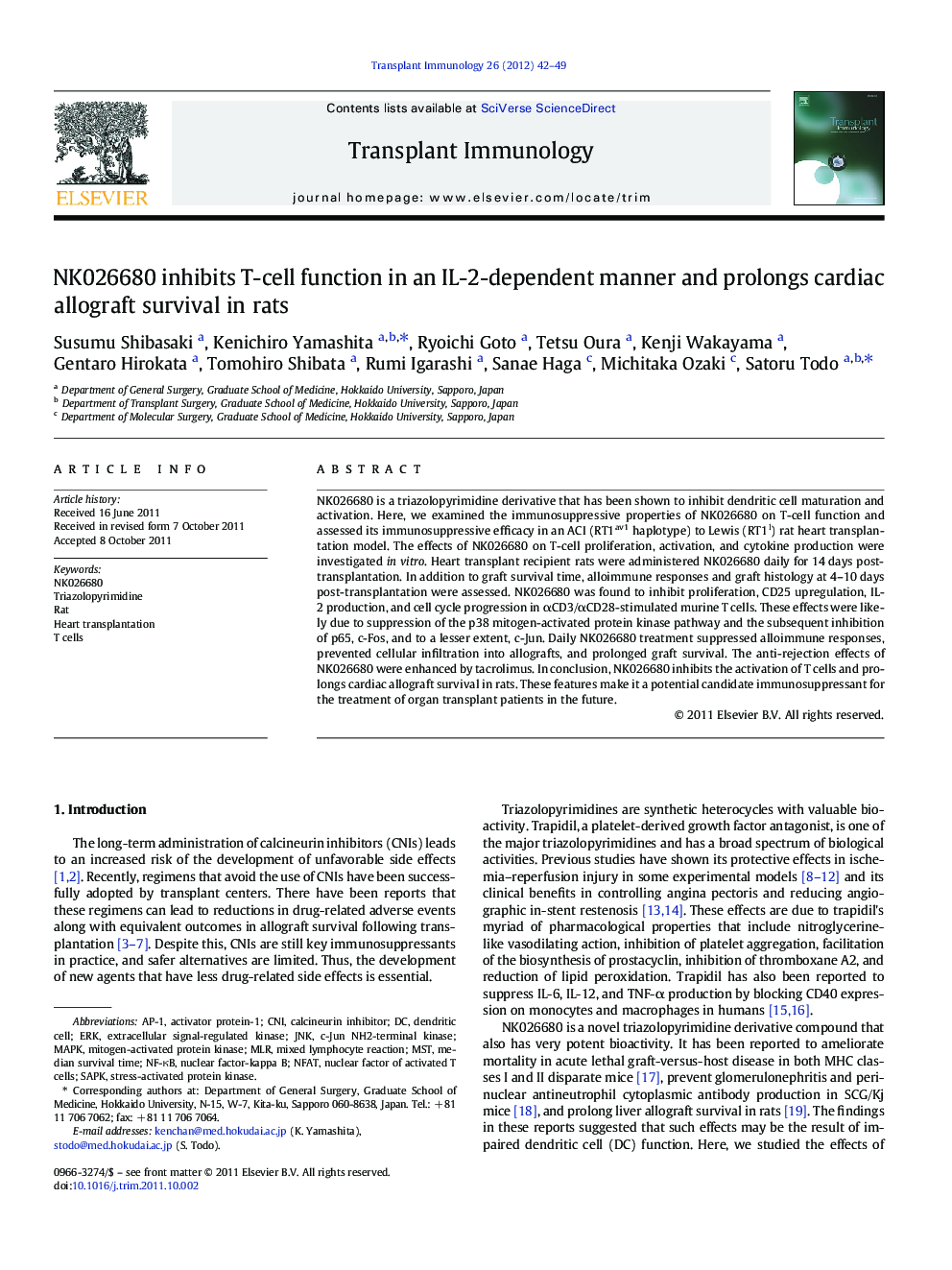| Article ID | Journal | Published Year | Pages | File Type |
|---|---|---|---|---|
| 3392230 | Transplant Immunology | 2012 | 8 Pages |
NK026680 is a triazolopyrimidine derivative that has been shown to inhibit dendritic cell maturation and activation. Here, we examined the immunosuppressive properties of NK026680 on T-cell function and assessed its immunosuppressive efficacy in an ACI (RT1av1 haplotype) to Lewis (RT1l) rat heart transplantation model. The effects of NK026680 on T-cell proliferation, activation, and cytokine production were investigated in vitro. Heart transplant recipient rats were administered NK026680 daily for 14 days post-transplantation. In addition to graft survival time, alloimmune responses and graft histology at 4–10 days post-transplantation were assessed. NK026680 was found to inhibit proliferation, CD25 upregulation, IL-2 production, and cell cycle progression in αCD3/αCD28-stimulated murine T cells. These effects were likely due to suppression of the p38 mitogen-activated protein kinase pathway and the subsequent inhibition of p65, c-Fos, and to a lesser extent, c-Jun. Daily NK026680 treatment suppressed alloimmune responses, prevented cellular infiltration into allografts, and prolonged graft survival. The anti-rejection effects of NK026680 were enhanced by tacrolimus. In conclusion, NK026680 inhibits the activation of T cells and prolongs cardiac allograft survival in rats. These features make it a potential candidate immunosuppressant for the treatment of organ transplant patients in the future.
► NK026680 inhibits IL-2 production and CD25 upregulation in mouse T cells. ► In these effects, the p38 MAPK and downstream substrates are involved. ► NK026680 treatment prolongs cardiac allograft survival in rat. ► This in vivo effect is enhanced when combined with tacrolimus.
